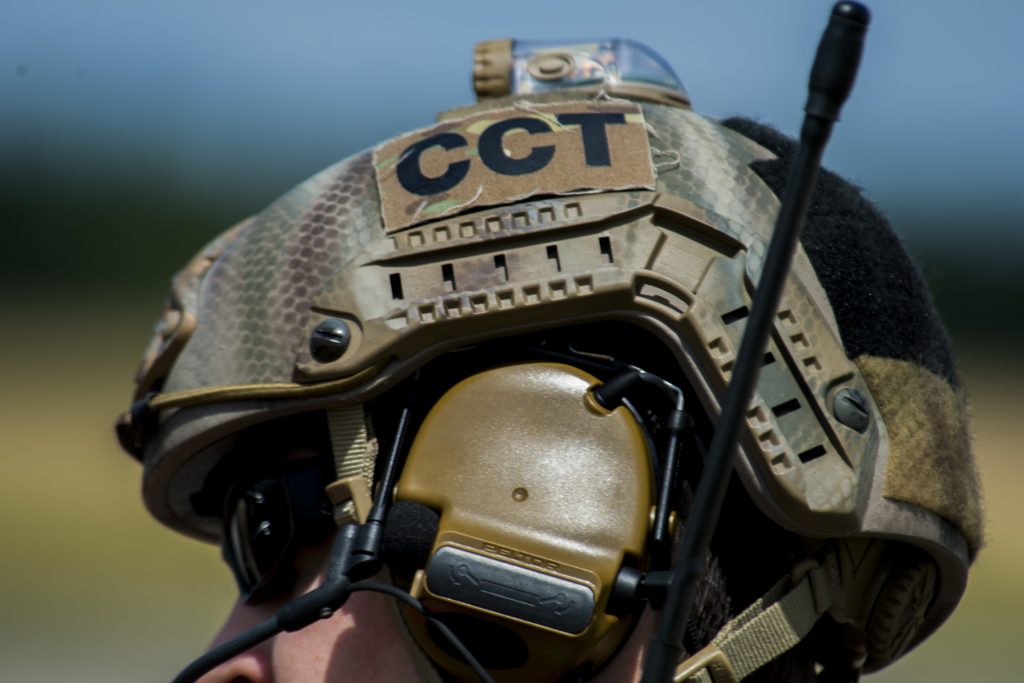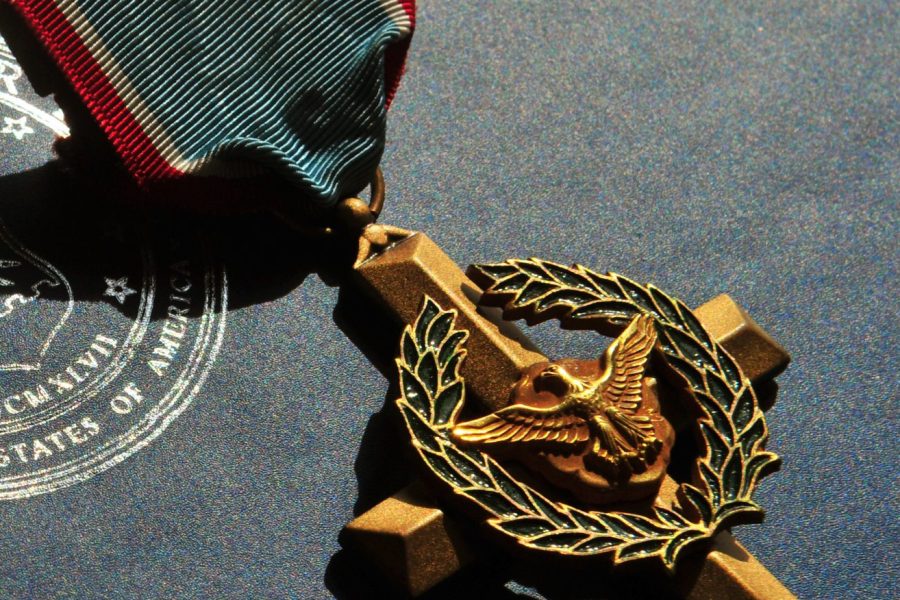An Air Force combat controller was awarded the Air Force Cross—the second-highest decoration for valor in combat behind the Medal of Honor—for actions during a fierce battle in Syria in 2018. His identity, however, remains a well-kept secret.
The Airman, a member of the 24th Special Tactics Squadron, was awarded the medal in September 2020, but the Air Force didn’t disclose it until it answered Washington Post reporter Kyle Rempfer’s Freedom of Information Act request seeking the citation and order. An Air Force spokeswoman confirmed the citation to Air & Space Forces Magazine and said the combat controller’s identity was redacted under a FOIA exemption covering personnel in overseas, sensitive, or routinely deployable units.
Rempfer wrote on X, formerly known as Twitter, May 31 that his FOIA request was related to the Battle of Khasham, which took place Feb. 7-8, 2018, near Dewr Az Zewr, Syria, the time and place included in the Airman’s citation.
“On this date, [redacted] exposed himself to artillery, rocket, and mortar bombardment, and direct fire from main battle tanks, rocket-propelled grenades, and heavy automatic weapons during the hasty defense of a United States Special Operations Forces operating location,” the citation reads. “His actions prevented an isolated force of American and coalition personnel from being overrun by a professionally trained and technically proficient combined-arms enemy assault comprised of main battle tanks, armored personnel carriers, heavy artillery tubes, and a battalion of infantry soldiers.”
At the time, U.S. officials said their troops faced an “unprovoked attack” by forces associated with the regime of leader Bashar al-Assad. U.S. forces have been in Syria since 2014 as part of Operation Inherent Resolve, its defeat-ISIS mission, and were embedded with the Syrian Democratic Forces, who oppose al-Assad in the Syrian civil war.
U.S. troops watched for about a week as “pro-regime” forces built up a battalion-sized force complete with artillery, tanks, and mortars near their position, officials said. The forces fired up to 30 artillery and tank rounds on the SDF and U.S. position, prompting a response by U.S. aircraft, including F-22s and MQ-9s, as well as artillery on the ground.
Air Force combat controllers deploy with special operations units into combat or hostile environments and help direct aircraft and provide command and control. According to a subsequent New York Times report based on interviews and documents, USAF combat controllers helped direct B-52 bombers where to strike, helping stop an intense barrage of tank fire, artillery, and mortar rounds.

The Air Force Cross citation notes that the Airman showed “extraordinary heroism, superb airmanship, and aggressiveness in the face of the enemy.”
Despite being significantly outnumbered, U.S. forces suffered no casualties in the battle.
There have been conflicting subsequent reports as to whether members of Russian private military companies were part of the formation that attacked U.S. forces. Officials have said they maintained deconfliction lines with the Russian military before and during the battle.
Since the Global War on Terror began in 2001, the Air Force has only announced the awards of 11 Air Force Cross medals, the latest in 2017. The service has had only one Medal of Honor recipient in that time—Master. Sgt. John A. Chapman, also a combat controller in the 24th Special Tactics Squadron.
